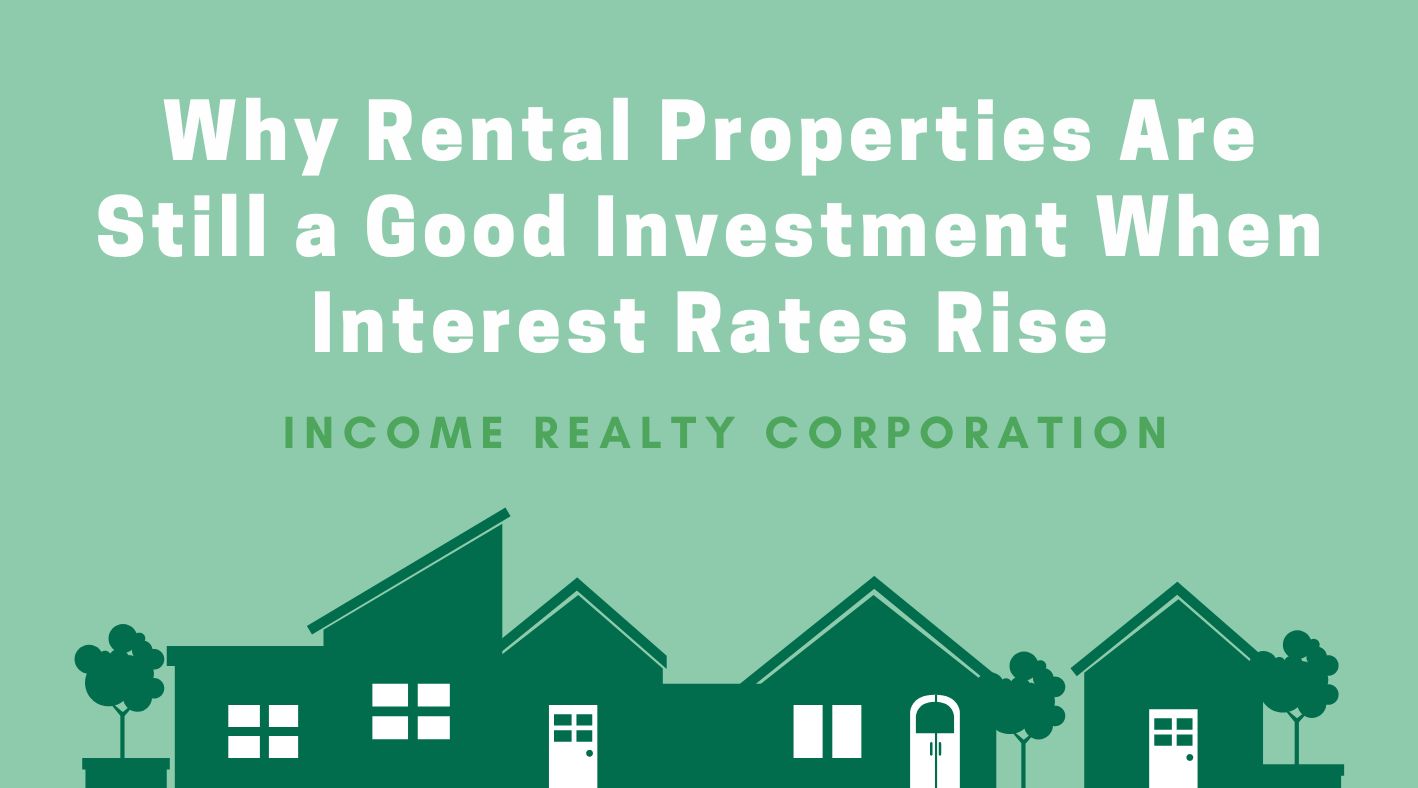Are you worried that rising interest rates will deflate the value of your rental property investment? Take a deep breath and relax! Despite the financial climate, rental properties remain a robust and rewarding investment.
When interest rates go up, it often makes buying a home less affordable for many, driving up demand for rentals. Meanwhile, your property's fixed-rate mortgage stays the same, possibly making your investment even more lucrative.
This article will delve into the nuanced benefits of holding onto rental properties in a high-interest-rate environment, providing you with insights to make well-informed decisions.
So, before you think of cashing out, read on to discover why your rental property could actually be a goldmine in disguise.
Reasons Why Rising Interest Rates Shouldn't Deter Your Rental Property Investment
Don't let rising interest rates spook you. Here’s why they shouldn't be a deal-breaker for your rental property investment plans.
Rental Properties are Long-Term Investments
Firstly, remember that rental properties aren't a quick flip; they are long-term investments. When interest rates rise, people might get jittery about short-term losses. But here's the thing: real estate typically appreciates over time, making it a stable asset in the long run.

Even if the value of your property takes a minor hit due to higher interest rates, the long-term potential for growth usually outweighs these short-term fluctuations.
Think of your rental property as a marathon, not a sprint. Over the years, your property is likely to gain value, providing you with a robust return on investment. So, don't sweat the small dips; keep your eyes on the horizon.
Rental Properties Offer Multiple Income Sources
The second point to consider is that rental properties give you various ways to make money, not just one. Sure, there's the rent that you collect every month—this is your bread and butter. But don't forget about property appreciation.
Even though you're focusing on rental income, the actual value of your property is probably going up, especially over the long term. Then there are also potential tax benefits specific to owning rental properties, which can make the deal even sweeter.
When interest rates rise, these multiple income streams can help offset any increased costs you might incur, such as higher rates on variable mortgages or lines of credit tied to your property.
Rent Increases With Time
Rent generally goes up over time, either due to inflation, increased demand, or improvements you make to the property.
This is a key factor that makes rental properties resilient against rising interest rates. When it becomes more expensive for people to buy homes due to high interest rates, the rental market often heats up.

More people need places to rent, and that increased demand allows you to potentially charge higher rent. It's a win-win situation for you.
And even if you have long-term tenants, many rental agreements have clauses that allow for annual rent increases, offering you a way to keep pace with or even outstrip rising interest rates.
How To Maximize Profits From Rental Property
The key to boosting your revenue as a landlord lies in a dual approach: Increasing property value and rent while minimizing expenses. Here are some simplified tips to achieve just that.
Improve the Property
Think of your rental property as a product. The better the product, the more you can charge for it. Simple improvements can significantly enhance the property’s value and therefore allow you to ask for higher rent. Consider rehabbing or renovating the property.
A fresh coat of paint, updated appliances, or revamped outdoor spaces can do wonders. By making your property more appealing, you not only attract higher-paying tenants but also reduce the time the property stays vacant, ultimately forcing a quicker increase in your profits.
Refinance Your Mortgage
Interest rates fluctuate over time. If you initially bought your property when the interest rates were high, keep an eye out for when they drop.
Refinancing your mortgage at a lower interest rate can increase your monthly cash flow substantially. Just make sure to weigh the costs of refinancing against the benefits to ensure it’s a financially savvy move.

Pick the Right Location
They say in real estate, it’s all about "location, location, location," and it’s true. The better the neighbourhood, the more demand there will be for your rental property. Pay close attention to areas experiencing growth in jobs, population, or even gentrification.
But don't put all your eggs in one basket by relying solely on these factors. It's crucial to have a backup plan, like focusing on neighbourhoods that consistently show strong rental demand, even if the anticipated growth or gentrification doesn’t pan out.
Lower Expenses
Reducing your expenses is another surefire way to increase your profit margins. Here’s how:
Energy Efficiency: Install energy-efficient appliances and lighting. It’s a small investment upfront that pays off in the long run through lower utility bills.
Preventive Maintenance: Regular maintenance checks can help you catch issues before they become major problems. This saves you money on big repairs and keeps your tenants happier, reducing turnover.
Streamline Operations: Hire a property management company to keep track of rent, maintenance requests, and other tasks. Automating these processes can save you both time and money.
Bottom Line
Investing in real estate is a long game, and with the right strategies, like location scouting and property upgrades, you're looking at a future of robust income streams.
If managing properties isn’t your jam, or if you simply want to make your life easier, consider hiring a professional property management company.
We highly recommend Income Realty Corporation. They've got the know-how to help you maximise your profits while minimising hassle. Happy investing!






